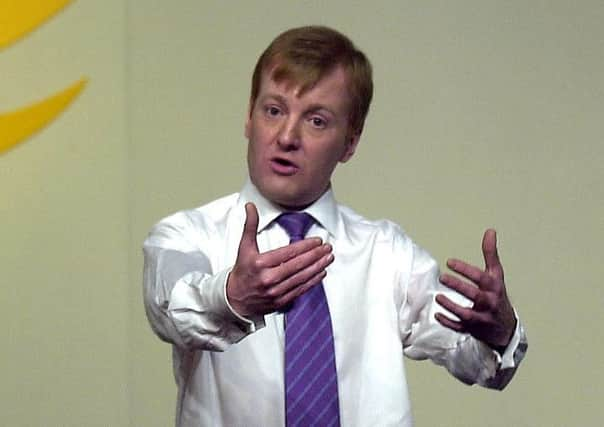Chilcot report: Charles Kennedy's judgement '˜vindicated'


Tim Farron said the decision by his late predecessor to oppose military action in 2003 had been “vindicated”.
Kennedy, former MP for Ross, Skye and Lochaber, was the only leader of a major UK party to voice his opposition to the invasion of Iraq.
Advertisement
Hide AdAdvertisement
Hide AdThe Highlander was branded a “spineless reptile” by one London newspaper in response and referred to as ‘Charlie Chamberlian’ by some MPs.
Kennedy stood down as Lib Dem leader in 2006 and lost his seat at the 2015 General Election. He died last year aged 55.
Speaking in response to the publication today of the long-awaited Chilcot report, Farron said: “Charles Kennedy’s judgement has been vindicated in every respect. I hope those in the Labour and Conservative parties who were so forceful in their criticism of him and the Liberal Democrats at the time are equally forceful in their acknowledgements today that he was right.
“An absence of scrutiny by the Conservative party opened the door for Blair and the Labour Government to pursue a counter-strategic, ill-resourced campaign.”
Kennedy was only UK party leader to address a major Stop the War rally in London in February 2003, which attracted more than one million marchers from across the country.
Days before the invasion, he told his fellow MPs: “Before launching an almighty assault upon Iraq, is it not better to pursue the course of disarmament on the ground in the presence of weapons inspectors?
“No matter how sophisticated modern technology, even compared with at the time of the last Gulf war, is it not more precise to have weapons dismantled in the presence of inspectors rather than so-called precision bombing trying to take them out?”
Sir John Chilcot’s report found the UK chose to join the invasion of Iraq before “peaceful options for disarmament had been exhausted” and “military action at that time was not a last resort”.